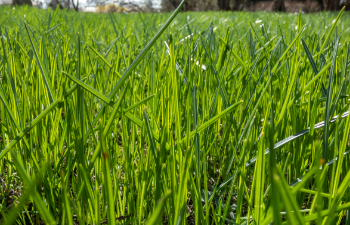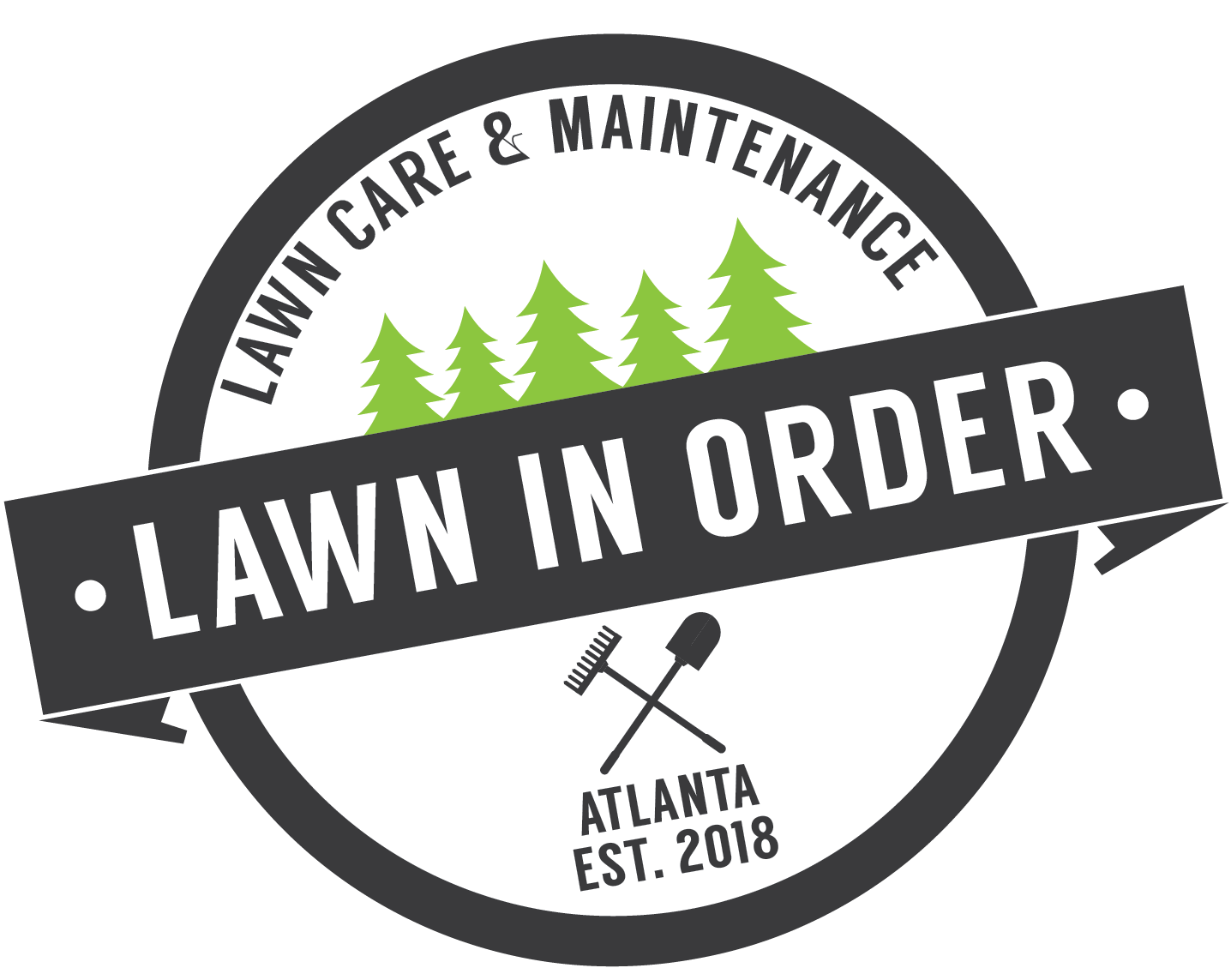
As the vibrant colors of summer fade away, homeowners in Georgia must prepare their lawns for the upcoming fall season. However, this time of transition also brings a set of challenges, as the cooler temperatures and increased moisture create favorable conditions for lawn diseases to thrive. To help you maintain a healthy and lush lawn, we, on behalf of Lawn in Order, have compiled a list of the top lawn diseases you need to watch out for in Georgia during the fall season.
Brown Patch (Rhizoctonia solani)
Brown Patch is one of the most common lawn diseases in Georgia, affecting warm-season grasses such as Bermuda grass, centipede grass, and St. Augustine grass. It appears as circular patches of brown or tan grass, ranging from a few inches to several feet in diameter. Brown Patch thrives in cool, moist conditions and is often triggered by excessive nitrogen fertilization or overwatering.
To prevent Brown Patch, avoid overwatering and water in the morning to allow the grass to dry before nightfall. Additionally, ensure proper lawn maintenance practices, such as mowing at the recommended height for your grass type and aerating to improve soil drainage. Fungicides can be used to treat severe cases, but prevention through good lawn care practices is key.
Large Patch (Rhizoctonia solani):
Large Patch, also known as Brown Patch in warm-season grasses, primarily affects zoysia grass and centipede grass during the fall season. It manifests as irregularly shaped patches of light brown or straw-colored grass, ranging from a few feet to several yards in diameter. Large Patch typically starts as small circular patches and expands rapidly during periods of cool and wet weather.
Similar to Brown Patch, proper lawn maintenance practices are essential for preventing Large Patch. Avoid excessive nitrogen fertilization, promote good air circulation, and reduce shade by pruning trees and shrubs. Fungicides can be used for treatment, but early detection and prevention are crucial.
Dollar Spot (Sclerotinia homoeocarpa)
Dollar Spot is a common fungal disease that affects various grass species, including Bermuda grass, centipede grass, and zoysia grass. It appears as small, silver-dollar-sized patches of tan or straw-colored grass, usually surrounded by a reddish-brown or purplish border. Dollar Spot thrives in cool and moist conditions, particularly when there is a nitrogen deficiency.
Maintain proper fertilization practices to ensure the lawn has adequate nitrogen levels. Avoid excessive thatch accumulation by regular dethatching and provide sufficient irrigation to prevent drought stress. Fungicides may be used if the disease persists despite cultural practices.
Pythium Blight (Pythium aphanidermatum)
Pythium Blight, also known as grease spot or cottony blight, primarily affects cool-season grasses like perennial ryegrass and tall fescue. It appears as circular patches of wilted or water-soaked grass with a slimy, greasy, or cottony appearance. Pythium Blight thrives in humid conditions and can spread rapidly during periods of warm, wet weather.
To prevent Pythium Blight, avoid overwatering and promote proper soil drainage. Water deeply but infrequently to allow the grass to dry between watering cycles. Improve air circulation and reduce shade by pruning trees and shrubs. Fungicides can be used for treatment, but prevention through good cultural practices is crucial.
Let Our Experts Battle Your Lawn Disease in Decatur
Maintaining a healthy and disease-free lawn requires vigilance and proactive care, especially during the fall season in Georgia. By understanding the common lawn diseases like Brown Patch, Large Patch, Dollar Spot, and Pythium Blight, you can take the necessary steps to prevent and manage these issues. Remember to implement proper lawn care practices, such as adequate fertilization, proper irrigation, mowing at the correct height, and ensuring good air circulation. With a little attention and care, you can enjoy a lush and beautiful lawn throughout the year. Happy gardening!

